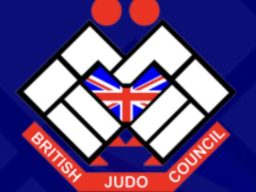Class times
Fridays - Junoirs 6-7.30pm Senoirs 7.30-8.30pm
Sundays - Please check we are training as some Sundays we are away.
- Mon – Thu
- Closed
- Friday
- 05:30 pm – 09:00 pm
- Saturday
- Closed
- Sunday
- 10:00 am – 12:00 am

Who We Are
Debbie and Jason Anderson, club founders 2001
Sensei Jason 4th Dan BJC
Sensei Debbie 2nd Dan BJC
In the world of judo, instructors play a pivotal role in shaping the future of the martial art and sport. The journey often begins with individuals earning their first dan, and as they progress, the significance of each dan rank becomes increasingly pronounced. Showing skill and commitment, which allows them to take on teaching roles, sharing their knowledge with novices.
As those passionate about judo continue their training, they may strive further in their grads or competitive levels. Levels of expertise is not only marked by technical proficiency but also a deep understanding of the philosophy behind judo. Instructors are often revered, possessing the ability to inspire and mentor the new generation of judokas and instilling in them the values of respect, discipline, and perseverance.
The journey to becoming a distinguished instructor in judo often includes a rich tapestry of experiences, competitions, and personal growth. In the UK local dojos and judo clubs, actively promoting the sport and enhancing its community presence. They represent the bridge between tradition and modernity in the evolving landscape of judo.
Furthermore, the role of a judo instructor transcends mere technical training; it encompasses coaching strategies, psychological preparation, and fostering an inclusive environment for practitioners of all ages.
Fordley JC
(Northumberland BJC Area)
7m x 9m training mat
Basic class structure - White gi please (suit)
Kneeing bow
Warm up
Training/Technical
Stretch off
Kneeling bow
member of the BJC

Vicky P (Assistant coach and mentor)
Support and coaching team
Playing a pivotal role in nurturing skill development and fostering a sense of camaraderie among judokas.
A good coach not only imparts technical knowledge and strategy but also provides emotional encouragement, helping athletes navigate the challenges of training and competition. Cultivating confidence and resilience, allowing practitioners to push their boundaries and achieve personal growth.
By fostering strong communication and understanding, coaches can tailor their guidance to meet the individual needs of each judoka, ensuring that every athlete feels valued and motivated.

Club Welfare Officer 2025
Craig Bridgwood (club welfare and support)
The role of a Welfare Officer in judo is essential for ensuring the safety and wellbeing of all participants, especially the younger athletes. Craig is responsible for creating a positive environment where judokas can train and compete without fear of bullying, abuse, or discrimination. He plays a crucial part in implementing safeguarding policies, providing support to athletes, and promoting a culture of respect and inclusion within the club. By being a point of contact for concerns and ensuring the club adheres to the governing body's standards, the Welfare Officer helps to foster a sense of security and community, allowing athletes to focus on their development in the sport.
Megan (assistant coach)
Coaching and supporting recognises that every athlete progresses at their own pace.
allowing for ongoing feedback and adjustment of training methods to address specific challenges. This enhances and contributes significantly to the overall growth and enjoyment of the sport.


Cameron (assistant coach and mentor)
In the world of judo, the roles of coach, mentor, supporter, and competitor are intertwined, creating a rich tapestry of growth and development.
A coach imparts technical knowledge and strategic insights but also nurtures the mental resilience necessary for success on and off the mat.
As a mentor, they guide judokas through the challenges of competition, offering support and encouragement while helping athletes cultivate their own unique styles and philosophies of judo.
In judo, success is rarely a solitary achievement; it is a collective effort that celebrates the contributions of coaches, mentors, and supporters alike.
©Copyright. All rights reserved.
We need your consent to load the translations
We use a third-party service to translate the website content that may collect data about your activity. Please review the details in the privacy policy and accept the service to view the translations.



